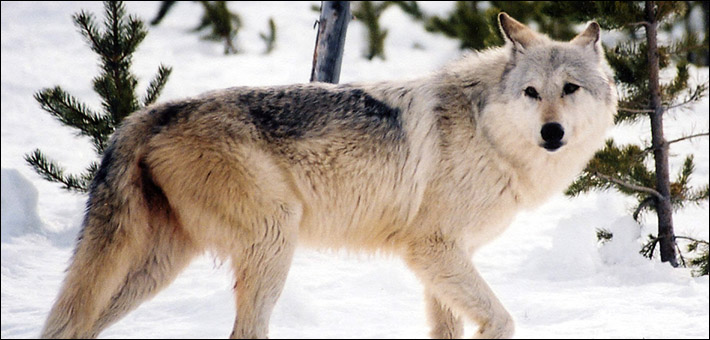The Keystone Policy Center released the Wolf Restoration and Management Plan Summer 2021 Public Engagement Report, summarizing the input received during public engagement activities conducted by Colorado Parks and Wildlife (CPW) and Keystone in the summer of 2021.
“This report qualitatively details the various perspectives gathered during our summer public engagement effort,” said Julie Shapiro, director of the Natural Resources Program for Keystone Policy Center. “The report does not attempt to draw conclusions regarding which specific restoration and management strategies were favored by participants in the process, but instead details the underlying rationales, interests and values expressed of those who participated.”
Engagement content and questions detailed in the report are structured around four major planning topics:
- Wolf Restoration: Restoration logistics, including source populations of wolves to be released; considerations for where wolves should be released; release technique; and pace of restoration.
- Wolf Management: Indicators of restoration program success including for wolf populations and other ecological, social and/or economic indicators; multi-jurisdictional management and government engagement; human-wolf conflicts; hunting of wolves; monitoring; and funding.
- Livestock Interactions: Depredation trends; ecological, economic, and social contexts for wolf-livestock interactions; conflict minimization practices; compensation programs including investigation, verification, direct, and indirect costs; nonlethal vs. lethal management of conflict wolves; partnerships; and funding.
- Engagement, Education and Outreach: The planning and engagement process; engagement of different stakeholder interests; education approaches and content.
Colorado Parks and Wildlife and Keystone Policy Center engaged more than 3,400 participants through 47 meetings and an online comment form in the summer of 2021. The meetings included 16 in-person public open houses throughout the state, 17 in-person Western Colorado geographic focus groups, 10 virtual interest-based focus groups; two in-person Tribal consultations, and two virtual town halls.
The Public Engagement Report captures the diverse public perspectives toward wolf restoration and management which often reflect the differing value sets concerning management of public lands and wildlife, particularly predators. Those differences are reflected on topics such as maximum population thresholds; legal hunting of wolves; lethal management of conflict wolves; management strategies related to public lands; the decision by voters to restore wolves to the state; and representation in decision processes on wolf restoration and management.
The report also suggests potential principles for common ground, including the desire to incorporate science and diverse ecological, social and economic interests; provide an adaptive management model; proactively prevent conflict and fairly compensate for livestock losses; offer educational resources; value engagement and partnerships; and build sustainable capacity and funding.
The report will be presented to the Colorado Parks and Wildlife Commission on November 18 at its meeting in Lamar, Colorado. Public input along with feedback from stakeholder and technical advisory groups are provided on an ongoing basis to CPW and the Commission for consideration in the development of a draft Wolf Restoration and Management Plan. The draft plan will be provided to the public for further comment prior to the presentation of a proposed final plan for review and approval by the Parks and Wildlife Commission.
To review the report with other commission materials on the CPW website, see https://cpw.state.co.us/Documents/Commission/2021/November/Item.21-Keystone_Summer_2021_Wolf_Engagement_Report.pdf.
You may also review along with other wolf engagement materials by visiting: https://www.wolfengagementco.org/summer-2021-public-engagement-report.


 Steven Williams is the Chief Executive Officer of PepsiCo North America, overseeing a more than $48 billion business that spans PepsiCo’s Foods and Beverage operating units. His leadership encompasses more than 125,000 associates and over 900 locations across the U.S. and Canada. Steven joined PepsiCo in 2001 as part of PepsiCo’s acquisition of the Quaker Oats Company, which he joined in 1997, and has held leadership positions of increased responsibility since.
Steven Williams is the Chief Executive Officer of PepsiCo North America, overseeing a more than $48 billion business that spans PepsiCo’s Foods and Beverage operating units. His leadership encompasses more than 125,000 associates and over 900 locations across the U.S. and Canada. Steven joined PepsiCo in 2001 as part of PepsiCo’s acquisition of the Quaker Oats Company, which he joined in 1997, and has held leadership positions of increased responsibility since.


